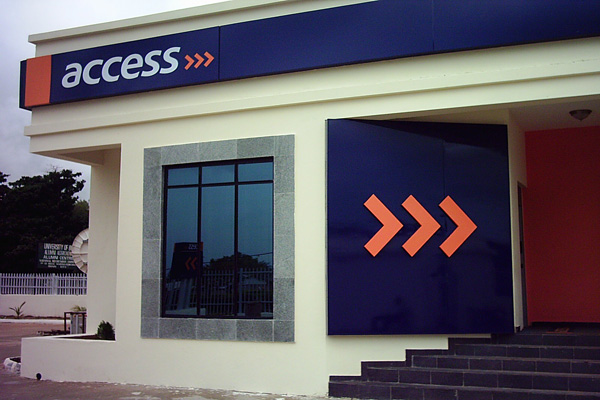- Post-Merger Access Bank Eyes $200m Additional Capital
Access Bank Plc is planning a rights issue to raise additional capital of about $200 million next year, when it concludes its deal with Diamond Bank Plc, Financial Times has said.
The proposed fund raising, according to the paper, is to keep its capital well above regulatory requirements.
Although efforts to confirm this development were unsuccessful as officials of the bank declined to comment last night, FT quoted bankers handling the rights issue to have said the move would enhance the new entity’s capital base and business development.
The proposed business combination deal between the two banks will result to a combined entity with total asset size of N6.108 trillion.
This, according to the third quarter unaudited results of both banks for the period ended September 30, 2018, means that the new combined entity will have the largest asset size among the banks in the country, thereby displacing Zenith Bank Plc and Guaranty Trust Bank Plc, respectively.
While Zenith Bank reported total assets of N5.618 trillion in its unaudited results for the third quarter of 2018, GTBank’s stood at N3.443 trillion.
Similarly, when the merger deal is concluded, the new institution would hold total customer deposits of N3.543 trillion. This is slightly higher than that of Zenith Bank, which was N3.275 trillion as at the end of September 2018, as well as GTBank’s total customer deposit of N2.239 trillion as at the end of the third quarter of 2018.
In addition, the loan book of the new entity would be N2.703 trillion, higher than that of GTBank, which was N1.270 trillion as at September 30, 2018, and that of Zenith Bank Plc which was N2.066 trillion as at September 30, 2018.
The transaction has been approved by the Central Bank of Nigeria (CBN).
According to a statement from Diamond Bank on Monday, it was expected to be completed in the first half of 2019.
The statement added that the proposed merger would involve Access Bank acquiring the entire issued share capital of Diamond Bank in exchange for a combination of cash and shares in Access Bank via a Scheme of Merger.
Based on the agreement reached by the Boards of the two financial institutions, Diamond Bank shareholders would receive a consideration of N3.13 per share, comprising of N1 per share in cash and the allotment of 2 New Access Bank ordinary shares for every seven Diamond Bank ordinary shares held as at the Implementation Date.
Speaking on Arise TV yesterday, the Chief Executive Officer of Cowry Assets Management Limited, Mr. Johnson Chukwu, hailed the deal.
“Diamond Bank had huge non-performing loans (NPLs) which were weighing down the performance of the bank. And when you have huge NPLs, it leads you to lose your liquidity.
“Diamond Bank was already having some stress as a result of high NPLs. But this for me was one of the easiest and smoothest ways to resolve an emerging banking crisis.
“The reality is that the bank had challenges and took a wise decision, instead of waiting for the central bank to intervene and drive its consolidation. For Diamond Bank, this was a good deal for its shareholders and directors,” Chukwu explained.
On their part, analysts at Lagos-based CSL Stockbrokers Limited, stated that Diamond Bank shareholders stand to benefit considerably from the merger, considering that the offer was at a premium of 260 per cent over the market price as at the date of the final binding offer (December 13) while Access Bank was priced at market price.
The financial advisory firm noted in a report yesterday, that the transaction would be, if it goes ahead seamlessly, a good strategic deal for the shareholders of both entities.
“Diamond Bank shareholders apart from getting a premium at the point of merger over current holdings will also in the long term stand to benefit from expected positive synergies from the merger.
“Access Bank on the other hand stands to benefit considerably from Diamond Bank’s strong retail franchise.
“Diamond Bank has a strong retail franchise especially on the liability side giving it the lowest funding cost among peers.
“A merger with Access Bank, which still has a relatively high funding cost will be positive for Access Bank and in the long run, for the shareholders of the bank,” it explained.
They, however, pointed out that mergers and acquisitions are complex and “we do not expect to begin to see synergic benefits translate into profit in the near term.”
“We also expect that integration issues which are not strange to Access Bank, considering its prior acquisition of Intercontinental Bank, will slow down growth of the combined entity in the near term,” the firm added.


 Forex4 weeks ago
Forex4 weeks ago
 Naira4 weeks ago
Naira4 weeks ago
 Billionaire Watch3 weeks ago
Billionaire Watch3 weeks ago



 Naira4 weeks ago
Naira4 weeks ago






 Naira3 weeks ago
Naira3 weeks ago


 Naira2 weeks ago
Naira2 weeks ago






 Naira2 weeks ago
Naira2 weeks ago
 Economy4 weeks ago
Economy4 weeks ago

















